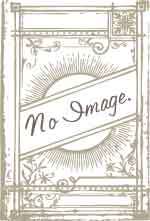
KINGSMILL, Hugh - Invective and Abuse : An Anthology - (1944 Hardcover)
Check my rate
View locations
| Main centres: | 1-3 business days |
| Regional areas: | 3-4 business days |
| Remote areas: | 3-5 business days |

| Main centres: | 1-3 business days |
| Regional areas: | 3-4 business days |
| Remote areas: | 3-5 business days |
Book did belong to a library before but still interesting for the more gifted in nastiness among us. >>> Invective has been understood in this Anthology to mean any direct verbal attack. Irony and satire are therefore, as far as possible, excluded, though the line of demarcation is sometimes indistinct. Irony is apt to pass into invective, as a writer or orator loses his detachment; the transition being marked among inferior performers by some such phrase as "But this is not a subject for mere jesting," or "But joking apart," words which are often the first indication to the readers or the audience that anything mirth-provoking has been set before them. As the detachment of irony makes it a finer weapon, intellectually if not morally, than invective, the transition from irony to invective is even in skilful hands nearly always jarring in its effect. Swift himself does not altogether escape the charge of sinking when he makes this transition. "The Voyage to the Houyhnhnms," in which the proportion of invective to irony is far greater than in the earlier portions of "Gulliver's Travels," is on the whole inferior to the Voyages to Laputa and Brobdingnag. Occasionally the transition is entirely successful, as in Johnson's letter to Chesterfield, where the direct attack of the bulk of the letter is so restrained in tone as to harmonise perfectly with the irony of the opening paragraph.